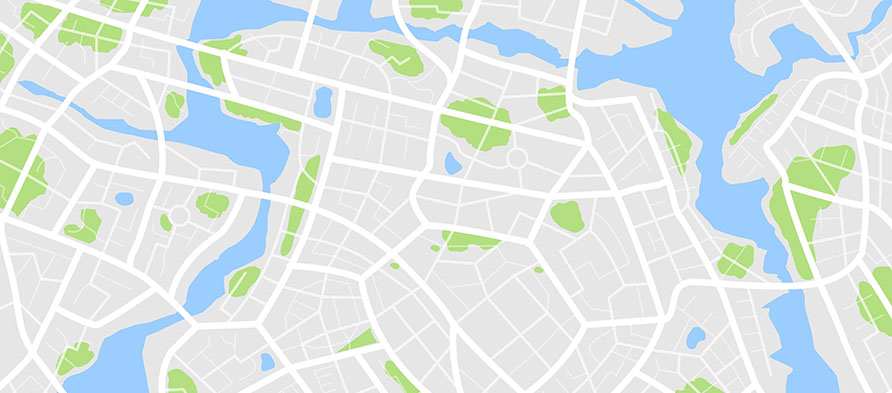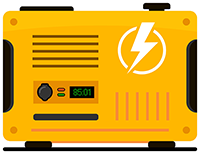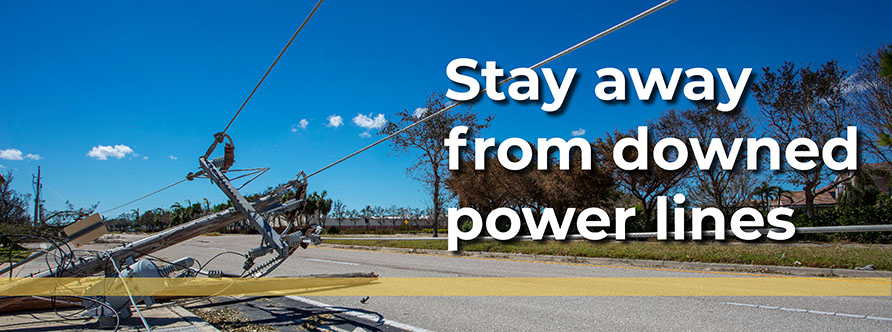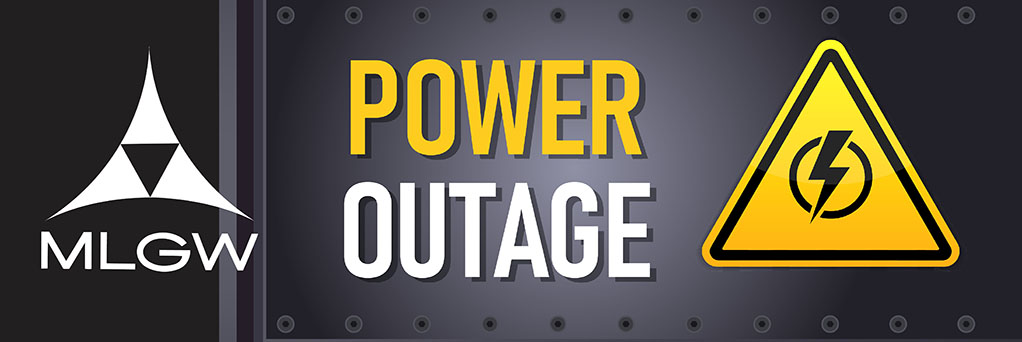
Why Is My Power Out
Using a Generator
Generators can be helpful during a power outage but also present serious health and safety concerns.
Always operate a portable generator in a well-ventilated and dry area, never indoors.
For more safety tips, visit our website and watch a short video on
portable generator safety.
Rolling Blackouts
Rolling blackouts are usually short intentional power disruptions. MLGW does not initiate them; they are started on orders from the Tennessee Valley Authority. They are a last resort to avoid a total blackout of the entire power grid. Such blackouts — or load curtailments — happen when the electricity demand exceeds the amount of power that can be generated.
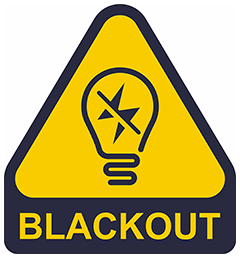

STEP 1:
POWER ADVISORYCustomers should voluntarily cut their power usage back immediately to avoid a larger crisis. Such reductions would include:
- Setting the thermostat below 68 degrees in the winter
- Avoiding running the washing machine or dishwasher
- Turning off all electric space heaters and most lights
STEP 2:
POWER WARNINGCustomers should continue to conserve energy to avoid interruptions. Rising demand for electricity is outpacing the available power supply. MLGW will try to advise customers when a rolling blackout will start so residents can prepare. Unfortunately, sometimes, a notice isn’t possible.
STEP 3:
POWER ALERTTVA is requiring us to reduce power demand to help avoid more serious consequences. Once TVA orders a rolling blackout* to start, MLGW will announce the start time and the specific group number that will be interrupted first. The outage moves from one area to the next, so power isn’t out too long in any location. MLGW has randomly assigned neighborhood areas and cities under nine groups as follows:
Group1 Southwest Memphis, East Memphis (U of M), Arlington, and Hickory Hill
Group2 North of Downtown, Main Library Area, and North Germantown
Group3 Central Gardens/Midtown, Getwell & 240, South Germantown/Winchester, and East Germantown/West Collierville
Group4 McLemore, Rhodes College Area, Presidents Island, East Collierville, North Bartlett, Lakeland, and Shady Grove
Group5 Chelsea, Raleigh & Summer, Parkway Village/BNSF Railway
Group6 South Downtown, I40/240, North Frayser, Lamar, Millbranch/240, Trinity Commons/Cordova
Group7 Hacks Cross Rd South of 385 South Millington and Charles Baker Airport Area, Kellogg, South of Wolfchase, Pidgeon Industrial Park
Group8 East Memphis, West of Airport, Bartlett, West Collierville
Group9 South Frayser, Millington, Berclair, Raleigh, West Holmes Road, Mt. Moriah/American Way
* Note: Rolling blackouts are temporary, usually lasting 30 minutes or more. Power will be restored to your home after the blackouts occur.
STEP 4:
POWER EMERGENCYDue to increasing instability, TVA has begun isolating portions of the power grid from its transmission system. MLGW will keep you posted on how long the blackouts will last.
FAQs
Q: How does MLGW decide whose power is restored first?
A. MLGW first restores power to transmission lines, towers and substations that deliver electricity.
We then restore power to hospitals, wastewater treatment plants, water pumping stations, fire and police facilities, and utility work centers.
After that, we provide power to nursing homes and critical care facilities, customer necessities, large employers and large concentrations of outages.
We then restore power to hospitals, wastewater treatment plants, water pumping stations, fire and police facilities, and utility work centers.
After that, we provide power to nursing homes and critical care facilities, customer necessities, large employers and large concentrations of outages.
Q: Who do I call about fallen trees at my house?
A. Only contact MLGW if the tree is affecting a power line. Call 901-544-MLGW (6549) if tree limbs have fallen on a power line that is still intact.
B. If a tree or limbs pulled down a live wire, call MLGW’s emergency number at 901-528-4465.
C. If a downed tree is not affecting a power line, contact a professional tree-trimming and removal service.
B. If a tree or limbs pulled down a live wire, call MLGW’s emergency number at 901-528-4465.
C. If a downed tree is not affecting a power line, contact a professional tree-trimming and removal service.
Q: What is a “weatherhead” or “meter center,” and what should I do if it is damaged?
A. The weatherhead connects the customer’s service equipment to MLGW’s. Along with other various components, it is called the “meter center.” The weatherhead is usually located above the roofline or attached to the side of the house.
Because the weatherhead and meter center are not MLGW property, if they are damaged, you must have them repaired by a licensed electrician and inspected by Code Enforcement before MLGW can restore your power.
MLGW will provide the licensed electrician with a replacement if the meter socket is damaged. If a ground-mounted meter center or pedestal is damaged, MLGW will assist the licensed electrician in repairing or replacing it with the customer’s other repairs.
Because the weatherhead and meter center are not MLGW property, if they are damaged, you must have them repaired by a licensed electrician and inspected by Code Enforcement before MLGW can restore your power.
MLGW will provide the licensed electrician with a replacement if the meter socket is damaged. If a ground-mounted meter center or pedestal is damaged, MLGW will assist the licensed electrician in repairing or replacing it with the customer’s other repairs.
Q: Will MLGW pay me for food spoiled or electric equipment damaged due to a natural disaster?
A. No.
MLGW abides by the Tennessee Governmental Tort Liability Act, which has strict guidelines on the types of claims that can and cannot be paid.
Your homeowner’s or renter’s insurance could cover spoiled food, including losses incurred due to the weather. Coverage and steps for filing a claim will vary by insurer; call your insurance company to find out what you need to do.
Customers enrolled in SNAP can apply for benefits if they lose power for 12 hours or more.
MLGW abides by the Tennessee Governmental Tort Liability Act, which has strict guidelines on the types of claims that can and cannot be paid.
Your homeowner’s or renter’s insurance could cover spoiled food, including losses incurred due to the weather. Coverage and steps for filing a claim will vary by insurer; call your insurance company to find out what you need to do.
Customers enrolled in SNAP can apply for benefits if they lose power for 12 hours or more.
Q: In previous storms, I’ve seen MLGW trucks in my neighborhood, yet my power was
sometimes not restored until days later. Why is this?
A. More than likely, you saw an employee whose job is to assess damage to the area. Only after this assessment can a crew be dispatched to the site. Crews are scheduled according to workload priorities and other factors to ensure maximum efficiency.
As attention turns to smaller pockets of outages or single outages, the process becomes much more time-consuming, resulting in prolonged restoration time.
See MLGW’s “Four Steps to Power Restoration” graphic or view a 3:18 video on “How Long Will the Power Be Out: Steps to Restoring Your Service.”
As attention turns to smaller pockets of outages or single outages, the process becomes much more time-consuming, resulting in prolonged restoration time.
See MLGW’s “Four Steps to Power Restoration” graphic or view a 3:18 video on “How Long Will the Power Be Out: Steps to Restoring Your Service.”
Q: Will I be charged for days that I do not have power?
A. No. Your MLGW charges are based on usage, not a daily rate. When your power is out, your electric meter does not record usage, and you are not charged.
If conditions require your bill to be estimated, the appropriate correction will be made to reflect your actual consumption when we can resume reading your meter. (Note: Estimations are calculated based on usage history for comparable months’ service.)
If conditions require your bill to be estimated, the appropriate correction will be made to reflect your actual consumption when we can resume reading your meter. (Note: Estimations are calculated based on usage history for comparable months’ service.)
Q: Should I unplug my appliances before my power is restored?
A. Not necessarily. It’s rare for appliances to be damaged when power is restored. More often, the appliance and/or wiring servicing the appliance may have been damaged during the incident, such as lightning, that caused the initial outage. In such a case, the damage will become evident when power is restored.
However, if customers want to prevent potential damage, unplug major appliances or sensitive equipment. Customers can also purchase surge protectors for these appliances.
However, if customers want to prevent potential damage, unplug major appliances or sensitive equipment. Customers can also purchase surge protectors for these appliances.
Q: How long will food in my refrigerator or freezer be safe to eat after a power outage?
A. Your refrigerator will keep food safe for up to four hours. After four hours without power, discard refrigerated perishable food such as meat, poultry, fish, egg and leftovers. If unopened, a half-full freezer will hold for 24 hours, and a full freezer for 48 hours.
To keep your food out of the Danger Zone, the USDA recommends monitoring the temperatures: The refrigerator should be at 40 degrees F or below, and the freezer should be at O F or below.
For advice on what to keep and discard, view the “Food Safety During Power Outage” chart at FoodSafety.gov. And remember when in doubt, throw it out!
For advice on what to keep and discard, view the “Food Safety During Power Outage” chart at FoodSafety.gov. And remember when in doubt, throw it out!




